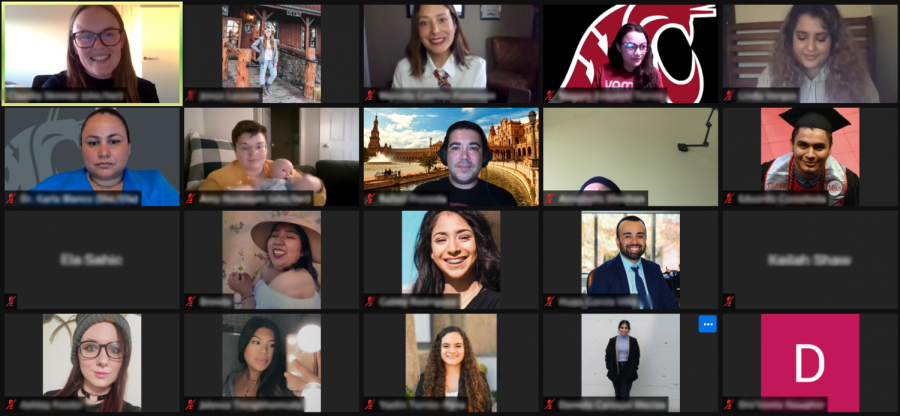Undocumented individuals share stories to encourage allies to vote
One student said she kept Mexican heritage a secret, now advocates for undocumented community
October 12, 2020
One of Linda Vargas’ first memories was crossing the U.S. border and missing her dog, who she had to leave behind, she said during an event that encouraged people to vote.
The WSU Undocumented Initiatives’ event “Why You Should Vote: Voting as an UndocuAlly” featured several WSU students and alumni sharing their experiences as undocumented individuals. Along with faculty members, they discussed how undocumented people can get involved in this year’s presidential election.
Linda Vargas, ambassador for Undocumented Initiatives and ASWSU senator, said she did not want anyone to know she was undocumented for a long time. She kept her Mexican heritage a secret, she said. She did not even speak Spanish in public.
“I only admitted that I was undocumented when I decided I wanted to do something for my community,” Vargas said. “I started advocating for the College Bound Scholarship bill.”
Vargas said her dream is to become a U.S. citizen and environmental scientist.
The undocumented community has endured ICE raids, separation, deportation, racism and restrictive immigration laws, said Hugo Garcia Villa, coordinator of Leadership Without Borders at the University of Washington.
After three years of applying to become a U.S. citizen, he finally obtained citizenship last year, he said.
“When I think about myself voting for the first time, I think of my grandparents, the undocumented community and coming to the U.S. when I was two,” he said.
Margarita Esquivel, financial adviser at NYLIFE Securities LLC and law student at Gonzaga University, said she was the only undocumented person in her family. She said she feared being separated from her family even while she attended WSU.
“I was labeled a 1079 student,” she said. “When I was at WSU, this was the bill that was being pushed for the undocumented.”
Her undocumented status encouraged her to pursue a law degree, she said. She is tired of witnessing injustice and could not stand on the sidelines anymore.
“You are not obligated to agree completely with every candidate,” Esquivel said. “Elections are not just important because of what is on the ballot. They are important because they impact vulnerable populations.”
Growing up, she did not hear of anyone not voting, said Brenda Ixta, president of the Dreamers Club and ASWSU College of Education senator at WSU Tri-Cities.
“I thought I would be given the right to vote when I turned 18,” she said.
She did not learn about the 15th Amendment until high school, she said, which is when she realized she could not vote.
If someone is undocumented, they can get involved in advocacy and democracy. A person does not require citizenship to use their voice, Ixta said.
Eduardo Castañeda-Díaz, WSU alumnus and candidate for the 13th Legislative District of the Washington House of Representatives, said his parents came to the U.S. when they were teenagers.
He said his parents were human trafficked. When they reached Washington, they worked in apple nurseries and potato fields.
Castañeda-Díaz said he grew up poor and did not have role models, financial resources and did not know what he wanted to do, he said.
“When I got to WSU, it changed my life for the better,” Castañeda-Díaz said. “I started networking on day one.”
He began working as an immigration paralegal after he graduated, advising DACA recipients and helping people get work permits, Castañeda-Díaz said.
Castañeda-Díaz attended law school at the University of Idaho for one year before dropping out to run for the House of Representatives, he said.
“Voting is important at all levels,” he said.












